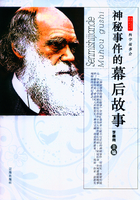However, by the name sensus communis is to be understood the idea of a public sense, i.e., a critical faculty which in its reflective act takes account (a priori) of the mode of representation of everyone else, in order, as it were, to weigh its judgement with the collective reason of mankind, and thereby avoid the illusion arising from subjective and personal conditions which could readily be taken for objective, an illusion that would exert a prejudicial influence upon its judgement.This is accomplished by weighing the judgement, not so much with actual, as rather with the merely possible, judgements of others, and by putting ourselves in the position of everyone else, as the result of a mere abstraction from the limitations which contingently affect our own estimate.This, in turn, is effected by so far as possible letting go the element of matter, i.e., sensation, in our general state of representative activity, and confining attention to the formal peculiarities of our representation or general state of representative activity.Now it may seem that this operation of reflection is too artificial to be attributed to the faculty which we call common sense.But this is an appearance due only to its expression in abstract formulae.In itself nothing is more natural than to abstract from charm and emotion where one is looking for a judgement intended to serve as a universal rule.
While the following maxims of common human understanding do not properly come in here as constituent parts of the critique of taste, they may still serve to elucidate its fundamental propositions.They are these: (I) to think for oneself; (2) to think from the standpoint of everyone else; (3) always to think consistently.The first is the maxim of unprejudiced thought, the second that of enlarged thought, the third that of consistent thought.The first is the maxim of a never-passive reason.To be given to such passivity, consequently to heteronomy of reason, is called prejudice; and the greatest of all prejudices is that of fancying nature not to be subject to rules which the understanding by virtue of its own essential laws lays at its basis, i.e., superstition.Emancipation from superstition is called enlightenment; for although this term applies also to emancipation from prejudices generally, still superstition deserves pre-eminently (in sensu eminenti) to be called a prejudice.For the condition of blindness into which superstition puts one, which is as much as demands from one as an obligation, makes the need of being led by others, and consequently the passive state of the reason, pre-eminently conspicuous.As to the second maxim belonging to our habits of thought, we have quite got into the way of calling a man narrow (narrow, as opposed to being of enlarged mind)whose talents fall short of what is required for employment upon work of any magnitude (especially that involving intensity).But the question here is not one of the faculty of cognition, but of the mental habit of ****** a final use of it.This, however small the range and degree to which man's natural endowments extend, still indicates a man of enlarged mind: if he detaches himself from the subjective personal conditions of his judgement, which cramp the minds of so many others, and reflects upon his own judgement from a universal standpoint (which he can only determine by shifting his ground to the standpoint of others).The third maxim-that, namely, of consistent thought-is the hardest of attainment, and is only attainable by the union of both the former, and after constant attention to them has made one at home in their observance.We may say: The first of these is the maxim of understanding, the second that of judgement, the third of that reason.
We readily see that enlightenment, while easy, no doubt, in thesi, in hypothesis is difficult and slow of realization.For not to be passive with one's reason, but always to be self-legislative, is doubtless quite an easy matter for a man who only desires to be adapted to his essential end, and does not seek to know what is beyond his understanding.But as the tendency in the latter direction is hardly avoidable, and others are always coming and promising with full assurance that they are able to satisfy one's curiosity, it must be very difficult to preserve or restore in the mind (and particularly in the public mind) that merely negative attitude (which constitutes enlightenment proper).
I resume the thread of the discussion interrupted by the above digression, and I say that taste can with more justice be called a sensus communis than can sound understanding; and that the aesthetic, rather than the intellectual, judgement can bear the name of a public sense, i.e., taking it that we are prepared to use the word sense of an effect that mere reflection has upon the mind; for then by sense we mean the feeling of pleasure.We might even define taste as the faculty of estimating what makes our feeling in a given representation universally communicable without the mediation of a concept.
Taste may be designated a sensus communis aestheticus, common human understanding a sensus communis logicus.
The aptitude of men for communicating their thoughts requires, also, a relation between the imagination and the understanding, in order to connect intuitions with concepts, and concepts, in turn, with intuitions, which both unite in cognition.But there the agreement of both mental powers is according to law, and under the constraint of definite concepts.Only when the imagination in its ******* stirs the understanding, and the understanding apart from concepts puts the imagination into regular play, does the representation communicate itself not as thought, but as an internal feeling of a final state of the mind.
Taste is, therefore, the faculty of forming an a priori estimate of the communicability of the feeling that, without the mediation of a concept, are connected with a given representation.















